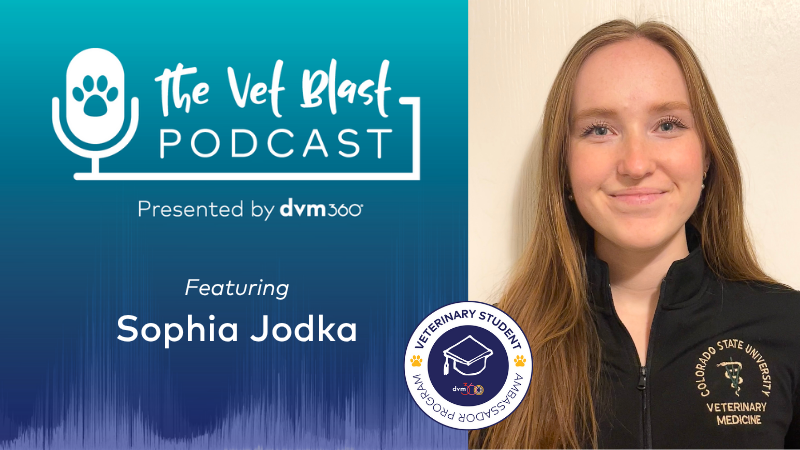Hello 👋
We’re (finally?) back with another edition of Weekend Rounds! After a few weeks off for summer holiday, we’re back—just like your neighbour’s cat after its “vacation” under the deck, or those smart puppies who barrel around the corner the second they hear the treat jar open from three rooms away.
We’ve missed filling your inbox with the latest in veterinary news and the occasional laugh. So grab your coffee, settle in, and let’s catch up.
Here’s what we’re covering:
🏆 Awards season
🇩🇰 A Denmark zoo wants to feed your pets to their animals
⚕ Transforming animal health in the 21st century
1⃣ A new One Health approach in Washington
🚀 Quick hits

🏆
The 2025 WVA Awards
We love kicking off a newsletter with a good news story. They’re not as common as we’d hope, but it was lovely to read about the amazing individuals who were honored at the 2025 World Veterinary Association Awards while we were off.
The WVA’s highest honor, Veterinarian of the Year, was awarded to Dr. Susan W. Mbugua of Kenya, who also won a WVA Global Award in the Veterinary Education category. A former Professor of Veterinary Surgery at the University of Nairobi, she played a pivotal role in advancing veterinary education through her mastery of complex surgical fields. As the founding chair of the Kenya Small and Companion Animal Veterinary Association, she also helped set and elevate professional standards throughout East Africa.

Dr. Mbugua receiving the WVA World Veterinary Education Award. Photo courtesy of www.worldvet.org
Other awards represented different categories, each demonstrating excellence and celebrating the remarkable contributions of veterinary professionals worldwide. Winner descriptions and biographies are courtesy of the WVA.
Professor Mangala Gunatilake, who was honoured in the Animal Welfare category. A distinguished professor at the University of Colombo, she developed Sri Lanka’s first ethical guidelines for animal-based research and founded the Sri Lanka Association for Laboratory Animal Science (SLALAS), championing compassionate animal care through education, clinical work and advocacy.
Dr. Randall Singer received top honours in the Medicine Stewardship category. A professor of epidemiology at the University of Minnesota, he has shaped global antimicrobial stewardship through groundbreaking research, policy development, and advisory roles with the U.S. Presidential Council and Codex Alimentarius Task Force on Antimicrobial Resistance.
Dr. Joni Scheftel, recipient of the One Health award, is a pioneering public health veterinarian with a distinguished four-decade career in advancing the principles of One Health. As a leader in the American Veterinary Medical Association (AVMA) and through her work with the Minnesota Department of Health and the University of Minnesota, she has championed antimicrobial stewardship and developed crucial industry resources to safeguard health across species and environments.
Ahmed Saheed Olaide has been named Veterinary Student of the Year. Ranking among the top students, he excels in molecular diagnostics research and led a groundbreaking study on drug-resistant Salmonellosis in Nigerian donkeys. As National President of International Veterinary Student Association (IVSA) – Nigeria and co-founder of the Bridge Vet Network, he champions animal welfare, responsible antibiotic use, and veterinary education initiatives. Ahmed’s work, supported by major organisations, has significantly influenced veterinary practices and public health policies across Nigeria, demonstrating an outstanding commitment to advancing both animal welfare and public health in the region.
In addition, Charlene Wandzilak was selected as the National Winner of the AVMA’s Unsung Hero Award -a program launched in 2023 that shines a light on veterinary team members including veterinary technicians, assistants, customer service representatives, kennel workers, and groomers who have embodied a level of commitment that surpasses expectations.
🇩🇰
Controversy for a Denmark Zoo
As NPR reported, Aalborg Zoo in Denmark recently went viral after asking the public to donate unwanted pets—like chickens, rabbits, guinea pigs, and horses—to be humanely euthanized and fed to predators such as the European lynx. While dogs and cats are excluded, the word “pets” triggered strong reactions, with some horrified at the idea and others praising the zoo for its “nothing goes to waste” approach to animal care.
Zoo nutrition experts note that whole prey—including fur, bones, and organs—is vital for the health of carnivores, providing nutrients and behavioral enrichment that chunk meat alone can’t match. In Denmark, carcass donation is common, but in the U.S., AZA-accredited zoos source prey differently and don’t solicit pets from the public.
For veterinarians, the story touches on tricky intersections of animal welfare, euthanasia ethics, and the potential value of carcass donation programs. It’s also a reminder that words matter—because in this case, one word turned a local feeding program into an international debate.
What do you think? Is it a reasonable request of the public, or something to get up in arms about?
⚕
Transforming animal health in the 21st century
In June, the Reagan-Udall Foundation for the Food and Drug Administration (FDA) in June released a report called Transforming Animal Health in the U.S. for the 21st Century, which identifies ways to modernize federal oversight of animal drugs, food, and biologics. We’ve got you covered with the synopsis below, or you can download the full publication here.
Through a SWOT analysis (which identifies strengths, weaknesses, opportunities, & threats), the report identifies challenges and unmet needs in the veterinary profession, and animal health, animal feed, and food-producing animal industries.
The report specifically mentions the Cures Act, which was signed into law in 2016, was designed to help accelerate human medical product development and bring new innovations and advances to patients who need. The report suggests that the Cures Act “dramatically” improved human medicine innovation by modernizing regulations and enhancing the expertise of regulatory staff, the report urges a similar transformation of the animal health regulatory process with 9 key takeaways:
New authorities – Modernize FDA definitions of “drug” and “food” to allow more flexibility, align with global standards, and encourage innovation.
FDA CVM review process – Update the drug review system with a structured risk-benefit framework, clarify ingredient pathways, and streamline approvals.
Minor uses & species – Restructure OMUMS to lead all minor species approvals and enable flexible labeling to reduce unnecessary applications.
One Health – Expand antimicrobial stewardship to companion animals; use education and prescribing dashboards to promote judicious use.
Global trade impacts – Harmonize regulations with trading partners, address supply chain risks, and close cost/regulatory gaps with imports.
Emergency preparedness – Create tiered emergency use authorizations, allow crisis-time access to select foreign-approved products, and appoint a central science-based coordinator.
Agency collaboration – Form a standing FDA–USDA–EPA working group and expand regular dialogue with veterinarians and animal sectors.
Enforcement gaps – Tighten enforcement on unapproved/compounded drugs and develop safe, FDA-reviewed alternatives for sectors dependent on compounding.
Workforce – Use flexible hiring tools to fill expertise gaps, especially for minor species, and support industry-wide recruitment and retention efforts.
The AVMA also had a great write up on the report late last month.
What do you think? How would these changes improve your day-to-day work, or patient outcomes?
1⃣
A new One Health approach in Washington
The Seattle One Health Clinic is proving that integrating veterinary and human medical services can create outsized benefits for people, animals, and communities. Serving primarily unhoused youth—many of whom own pets—the clinic removes the barrier of choosing between care for oneself or one’s animal. By offering free veterinary services alongside primary healthcare, the model boosted preventive care access for both species: nearly 80% of all visits resulted in human medical care, including most that began as pet-only appointments. Veterinarians worked side-by-side with nurse practitioners and patient navigators to address shared risks such as zoonotic disease, extreme weather, and environmental hazards, while also helping clients document pets as emotional support animals to unlock housing and service options.
What we love about it: this One Health approach shows how the profession can play a central role in a “triple bottom line” framework—people (strengthening health and trust among marginalized populations), planet (monitoring and mitigating shared environmental and zoonotic risks), and profit (creating opportunities for new partnerships, funding, and service models). The study’s success reinforces that veterinary medicine is more than animal care—it’s a critical entry point to improve community health and public well-being, while also demonstrating measurable value to stakeholders.
Late last month, the AAHA released a few recommendations on another aspect of One Health that prioritizes people: how veterinary teams can be better equipped to handle cases where family members’ challenges, like disability, mental health, transportation, or other, complicates patient care. Check it out here.
🚀
Quick Hits
Here are some of the other stories that caught our eye and we're following this week from around the veterinary world and animal kingdom:




